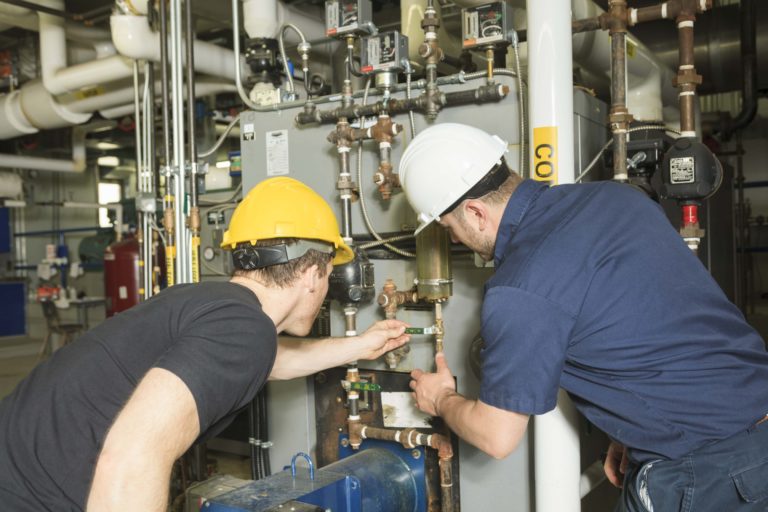Fire sprinkler systems operate on a simple cause and effect principle. So it stands to reason that fire system maintenance should be simple, too.
- Cause – increased heat (often caused by fire)
- Effect – sprinkler activates, water sprays, fire is extinguished
But it’s not that simple! The reality of how fire sprinkler systems work is anything but simple. Fire suppression systems are fine-tuned, industrial machines that must be regularly maintained to function properly when they are needed. As a property owner, this is your responsibility.
Michigan’s fire prevention code and your local government determine how often your fire safety system must be inspected. And the National Fire Protection Association (NFPA) Code/Standard #25 establishes the minimum requirements for the periodic inspection, testing, and maintenance of water-based fire protection systems.
Unless you are a fire prevention fanatic, NFPA 25 is not an easy read. The sixteen chapters and eight annexes go into tremendous detail concerning the operating condition and evaluation techniques of fire protection systems. A partial list of topics addressed in the tome includes:
- Air compressors
- General pressure gauge criteria
- Internal piping assessments
- Fire pump flow tests
- Forward-flow test for back-flow preventers
- Hydrant flushing and testing
- Fire pump operating tests
- Pre-action and deluge valves
- Valve status tests
- Water-flow alarm devices
- Residential sprinklers that are no longer available
- Steps to take if inspections reveal missing escutcheons
- Color-coded tagging programs
- Preparing preplanned impairment reports
- Risk assessment
- Automated inspections and testing
- Performance-based testing programs
- Connectivity and data collection
Preventing fires and saving lives is serious business. In fact, the NFPA 25 Code/Standard is considered so critical to the process that NFPA 13: Installation of Sprinkler Systems mandates that installers provide property owners with a copy of NFPA 25.
Unfortunately, when a fire prevention system is unused for an extended period – which is what we all want – internal leakage and corrosion can damage your system. Regular inspections, maintenance, and repairs ensure that your fire prevention system will work when it is needed.
If just thinking about codes, standards, and controls gives you a headache, let family owned and operated Brigade Fire Protection alleviate your concerns. As members of the NFPA, our NICET-certified technicians stay apprised of the ever-changing standards of the fire protection industry, so you don’t have to.
When properly maintained, fire sprinkler systems operate on a simple cause and effect principle. It’s that simple when Brigade Fire Protection works for you.

